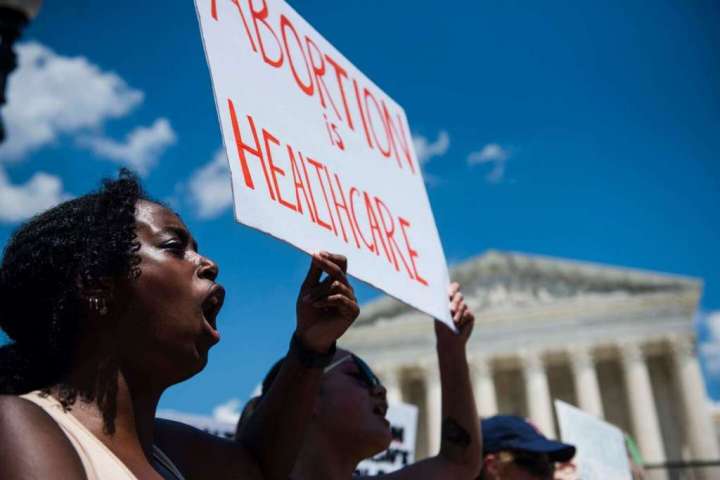The American Psychological Association (APA) has condemned the Supreme Court’s ruling overturning Roe v. Wade, saying that it will exacerbate the mental health crisis in America. In a statement released Friday on its website, the organization, which represents more than 130,000 psychology professionals in the U.S., expressed “deep concern” and “disappointment,” noting that the ruling goes against both precedent and science.
American Psychological Association condemns SCOTUS abortion decision

“We are alarmed that the justices would nullify Roe despite decades of scientific research demonstrating that people who are denied abortions are more likely to experience higher levels of anxiety, lower life satisfaction and lower self-esteem compared with those who are able to obtain abortions,” APA President Frank C. Worrell said in the statement.
The organization’s remarks come amid nationwide protests in response to the decision, which is expected to result in 13 states banning abortion (with many more to follow) and rising concerns about a potential nationwide ban. The statement from the APA stands in contrast to claims made by antiabortion activists, who have long pointed to mental health problems in their arguments, claiming that the procedure leads to adverse psychological outcomes. The science, according to the APA, strongly suggests otherwise.
“This is not about supporting life or supporting women,” Worrell told The Post by phone on Saturday, in response to the ruling. “This is about imposing personal views, often religious, on all of the country, and in doing so, taking away the discretion of many individuals to do what is important for their lives at what is already a very stressful time.”
The APA points to the Turnaway Study, a five-year research project that followed 1,000 people across the U.S. who had been denied or obtained abortions, based on local policy. Data from the study, summarized in a 2018 brief, suggests that those who were denied abortions experienced more anxiety in the months afterward, compared to those who had obtained abortions. It also found that having an abortion does not increase one’s risk of experiencing symptoms of depression, suicidal ideation, anxiety or stress, including PTSD. The data contradicts mandates that a person seeking abortion be counseled about mental health risks. “Laws that require women to be warned about negative psychological consequences of abortion are not based in evidence,” the 2018 brief says.
Another paper based on the data, published in 2020, found that the most common emotion experienced by women who had abortions was relief. And five years later, 95 percent of people who received abortions said they felt they made the right decision. “These results add to the scientific evidence that emotions about an abortion are associated with personal and social context, and are not a product of the abortion procedure itself,” the authors wrote.
By contrast, women in the Turnaway study who carried unwanted pregnancies to term after being denied an abortion reported more stress, had a higher chance of living in poverty and were more likely to stay with abusive partners.
Worrell believes the SCOTUS ruling will impact many aspects of psychological health because it restricts personal freedom. “Once you’ve taken away rights and there’s a lack of autonomy, there’s anxiety and worry about what will happen,” Worrell says. “Some people are going to wonder, ‘How can I be sexually active? What’s going to happen if I live in a state where I have no access to abortion and I happen to get pregnant? What’s going to happen to my daughter if she does?’ ”
The psychological toll also disproportionately impacts those with fewer resources, according to Worrell: people who can’t afford to take time off or pay for child care to travel to another state for the procedure, should they get pregnant. “All that this does is it actually increases the psychological stress, the anxiety and the burden on certain segments of society,” he says.
Jacent Wamala, a marriage and family therapist based in Las Vegas who works with women of color, cautions that trauma from this decision could lead to “hyper vigilant” behavior around sex. “If my rights have been restricted without me being able to do anything about it, in order to protect myself, I’ll go into survival mode. I have to be on the lookout for the next thing that’s coming,” she says.
According to Wamala, the changes that are likely to follow the SCOTUS ruling are so personal that it could have profound repercussions. “Anyone who has ever wanted to date or be in a relationship or be sexually intimate or whatever now has a whole new lens because of this decision,” she says. “There are financial implications. There are relationship implications. People have to look at their lives through a lens that they didn’t chose.”






